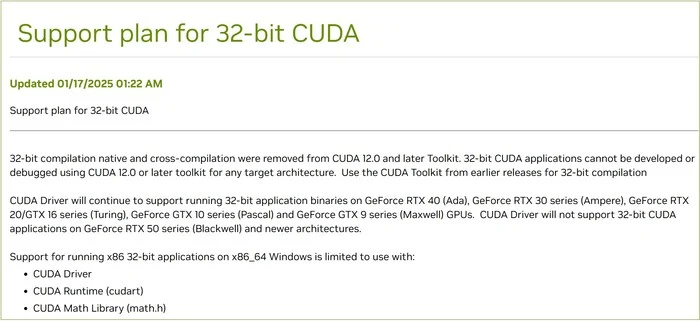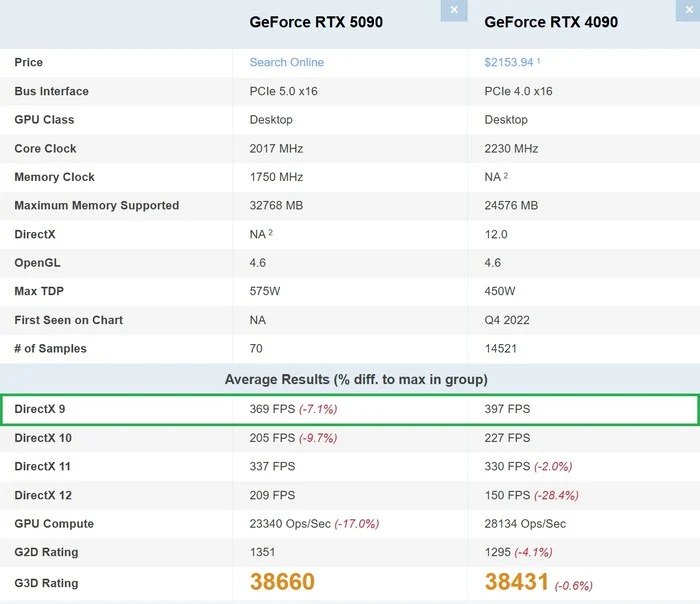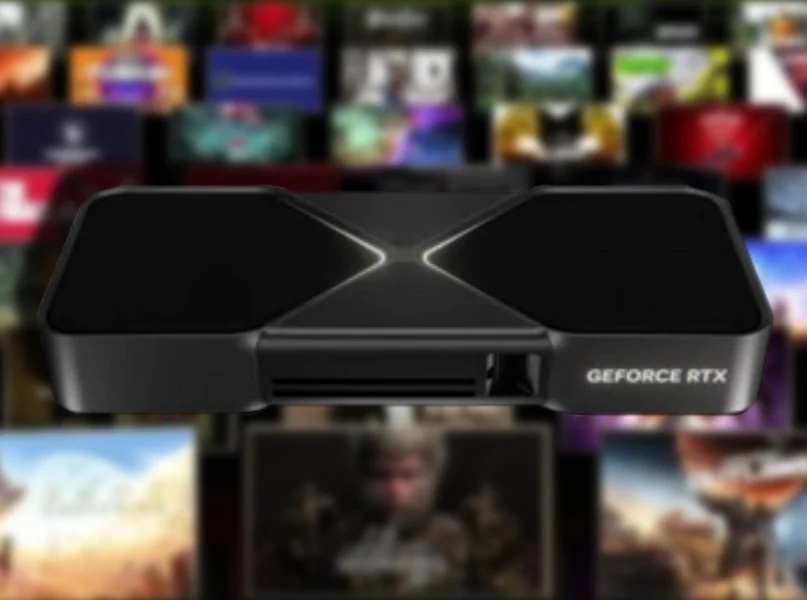Key Takeaways
1. Nvidia has removed 32-bit support for the GeForce RTX 50 series, impacting performance benchmarks.
2. The RTX 5090 and RTX 5080 underperformed compared to older models like the RTX 4090 in PassMark tests.
3. Compatibility issues with 32-bit CUDA and OpenCL appear to be the cause of performance drops in newer graphics cards.
4. Some gamers are reverting to older graphics cards for better compatibility with games that require 32-bit support.
5. The performance gap in benchmarks raises concerns about the overall gaming experience for users of the RTX 5090 and RTX 5080.
Recently, we’ve been discussing the odd situation concerning new graphics cards like the GeForce RTX 5090 and RTX 5080 on the PassMark benchmark database. Even though both models did well in our extensive evaluations, they struggled to surpass their older counterparts on this specific platform. In fact, the RTX 5090 ended up ranking lower than the RTX 4090 regarding overall graphics benchmark performance. The surprising cause of these performance issues has now come to light via an X account associated with PassMark.
Nvidia’s 32-Bit Support Removal
In simple terms, Nvidia’s subtle withdrawal of 32-bit support for the GeForce RTX 50 series probably should have been more noticeable. While 32-bit CUDA (Nvidia’s unique framework) and 32-bit OpenCL (the open-source counterpart) will continue to function on older card generations, they are now “deprecated” for the Blackwell architecture. Although PassMark indicates that its PerformanceTest application is 64-bit, the compatibility issues likely led to the RTX 5090 and RTX 5080 either not functioning properly or underperforming. Ironically, the site mentions that they couldn’t even acquire an RTX 5090 for direct testing.
Impacts on Benchmarking and Gaming Performance
While this revelation does clarify why the RTX 5090 and RTX 5080 appeared less impressive compared to the RTX 4090 and RTX 4080 in this context, and a future update from PassMark may enhance the performance of the Blackwell cards, that’s unfortunately where the good news ends. As highlighted in the X post included below this article, the removal of software layer support doesn’t clarify why the RTX 5090 lags behind the RTX 4090 in the DirectX 9 test, especially when comparing sample sizes of 70 versus 14,521, which is quite unbalanced.
Concerns for Gamers
Moreover, while this development is positive for those who care mainly about benchmarks, it might spell trouble for gamers. Due to the support changes, many gamers have reported purchasing older graphics cards just to ensure compatibility with games that rely on 32-bit PhysX. For instance, a user named u/jerubedo is utilizing an RTX 3050 (Asus OC Edition, which is available on Amazon) alongside the RTX 5090 to mitigate possible software support challenges. Among various game tests, they discovered that running Batman Arkham Asylum at maximum settings without the RTX 3050 yielded 61 FPS, whereas using the older Ampere card increased performance to 390 FPS.
Source:
Link




Leave a Reply